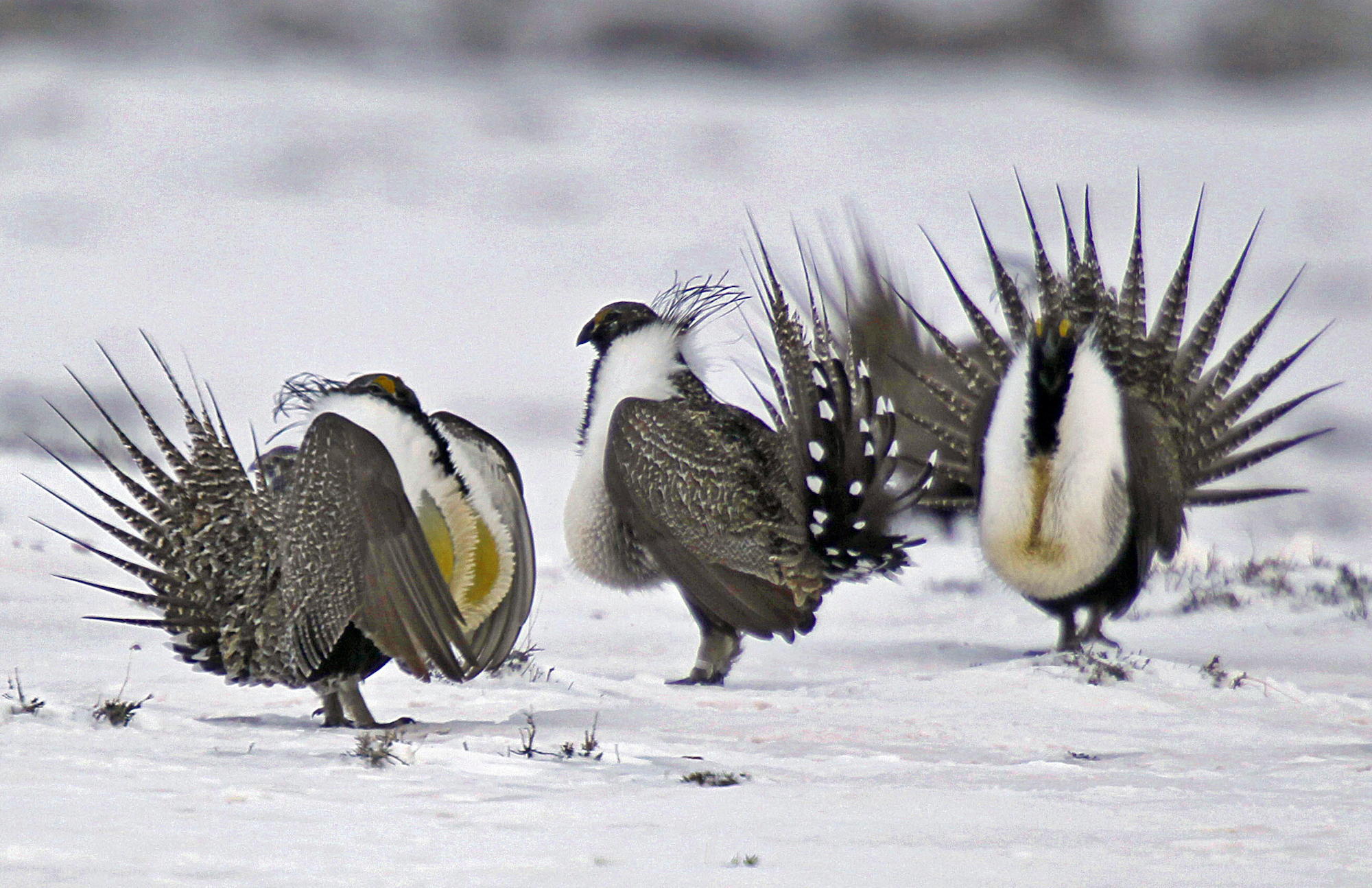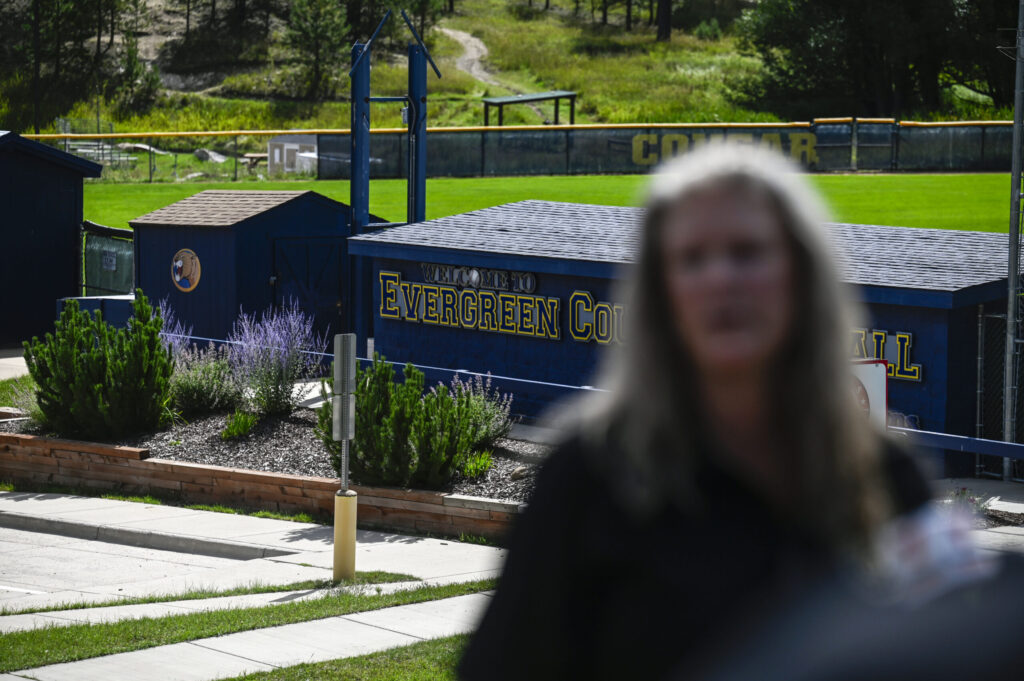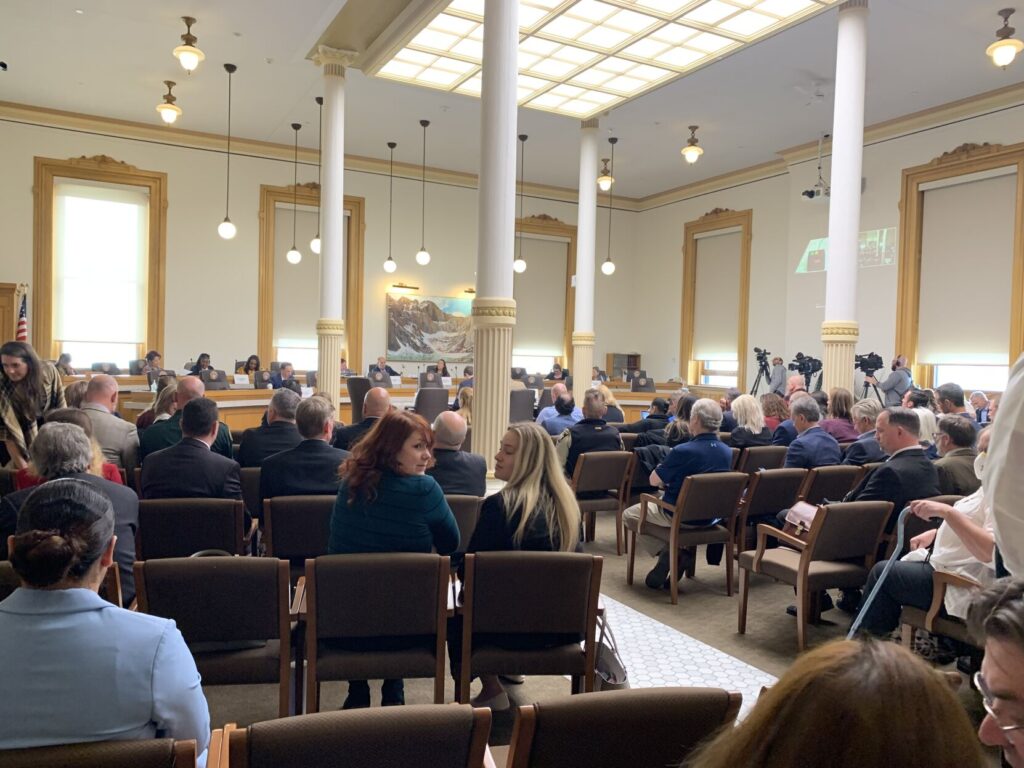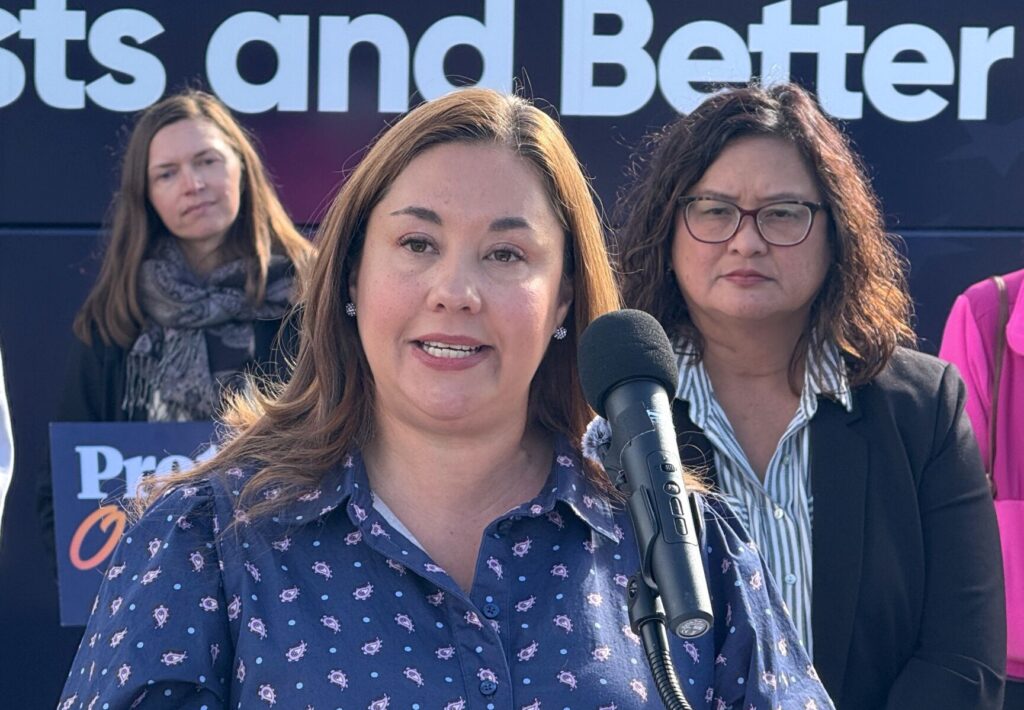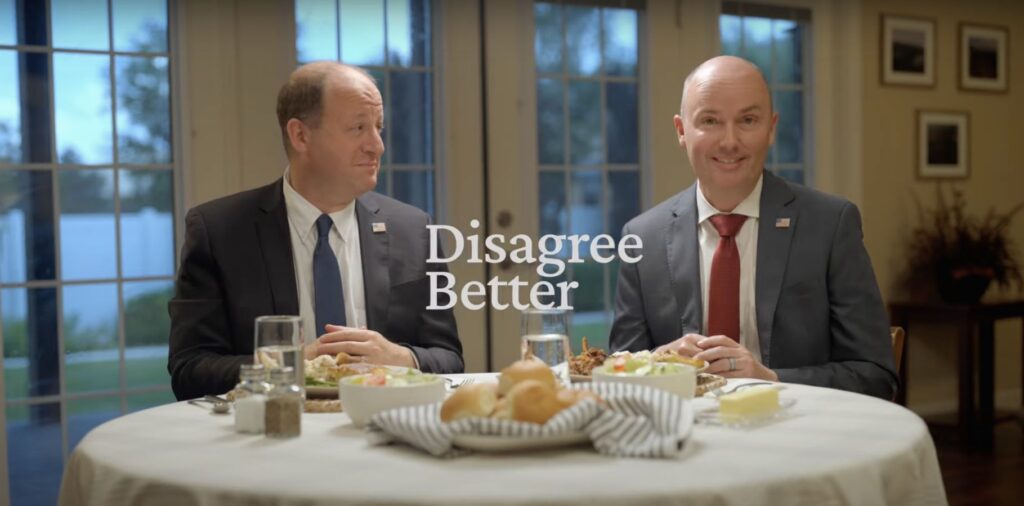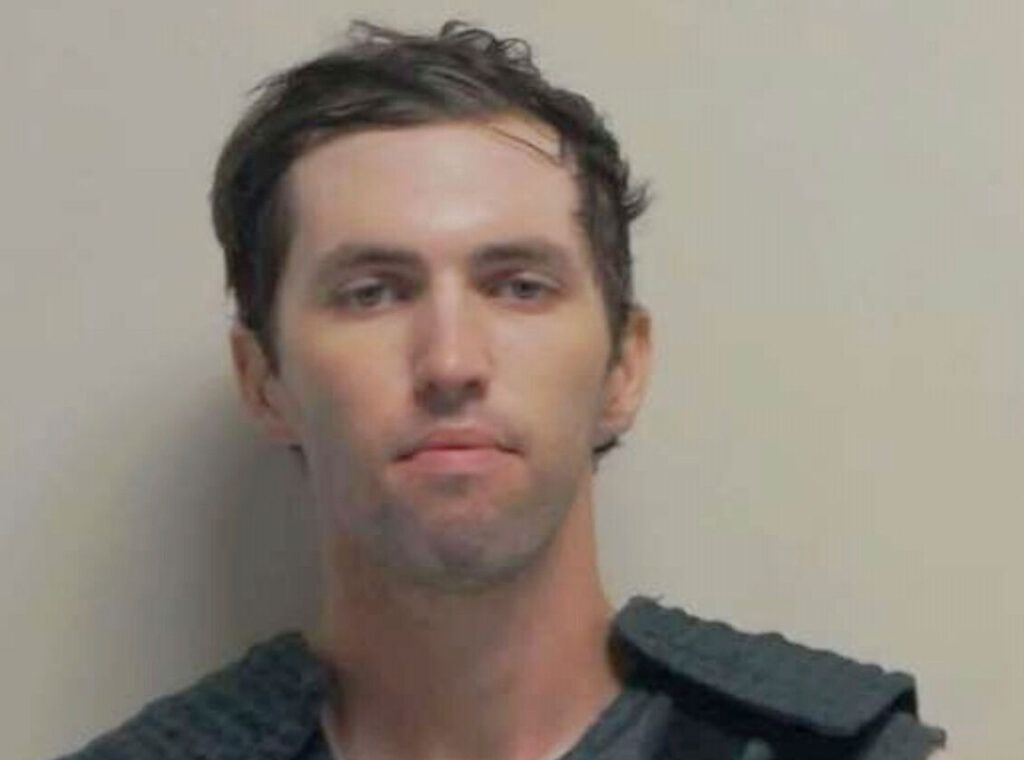OUT WEST ROUNDUP | Biden eyes reversing grouse rules; Kansas to aid workers who refuse shots

MONTANA
Biden mulls reversing Trump rules on western grouse
BILLINGS – The Biden administration on Nov. 19 said it will consider new measures to protect greater sage grouse, a bird species once found across much of the U.S. West that has suffered drastic declines in recent decades due to oil and gas drilling, grazing, wildfires and other pressures.
The announcement of a range-wide evaluation of habitat plans for greater sage grouse came after the Trump administration tried to scale back conservation efforts adopted when Biden was vice president in 2015.
A federal court blocked Trump’s changes. But Biden administration officials said the attempt set back conservation efforts – even as the chicken-sized bird’s habitat was further ravaged by wildfires, invasive plants and continued development.
Disagreement over the region’s sage grouse is longstanding and often bitter, and any new restrictions the administration adopts against energy or agriculture is sure to further inflame tensions. Republican-run states and industries that profit off public lands have clashed with wildlife advocates over how much space the birds need to survive.
Many environmentalists insisted that the 2015 conservation plans didn’t go far enough because of loopholes that allowed grazing and drilling on land that sage grouse need. Opponents said they hobbled economic progress.
In May, federal officials in response to a court order said that they would consider bans on new mining to help the birds.
A ban proposed under former President Barack Obama was dropped by the Trump administration. The affected lands totaled 10 million acres in Idaho, Nevada, Montana, Oregon, Utah and Wyoming.
KANSAS
Workers who refuse COVID shots gain protections
TOPEKA – Kansas Gov. Laura Kelly on Nov. 23 brushed aside complaints from fellow Democrats about signing a Republican measure aimed at financially protecting workers who refuse to get COVID-19 vaccines by declaring, “leadership means seeking compromise.”
Kelly acted with unusual speed, signing the bill the afternoon after its passage by the GOP-controlled Legislature just before midnight Nov. 22 during a one-day special session. Kansas is making it easy for workers to claim religious exemptions from COVID-19 vaccine requirements and promising unemployment benefits to people who are fired after refusing the shots.
Most Democratic lawmakers opposed the measure, and Kelly angered some of them with her pledge to sign it in response to federal mandates from President Joe Biden. She signed the bill in private after ignoring questions from reporters during a holiday event at the governor’s official residence.
Republican lawmakers passed the measure after forcing Kelly to call the Legislature into a special session when it had adjourned in May and wasn’t set to reconvene until January. The votes night were 24-11 in the Senate and 77-34 in the House.
Kansas enacted the new law with new COVID-19 cases on the rise. The federal government reported that 54.3% of its population was fully vaccinated, compared with the national figure of 59.2%.
Many Democrats saw the bill as a largely symbolic measure that offers little real protection to workers who want to resist vaccine mandates.
ARIZONA
Juul to pay $14.5 million to settle vaping lawsuit
PHOENIX – E-cigarette giant Juul Labs will pay Arizona $14.5 million and vowed not to market to young people in the state to settle a consumer fraud lawsuit.
The settlement announced by Attorney General Mark Brnovich on Nov. 23 is the second Juul has reached with state prosecutors. It ends litigation the Republican U.S. Senate candidate filed in January 2020 against Juul and another maker of electronic cigarettes, alleging they illegally targeted young people in their marketing.
Arizona previously obtained a $22.5 million judgment against defunct vaping product maker Eonsmoke but has not and is not likely to collect any of the money.
Juul Labs admitted no wrongdoing in settling the case and called it “another step in our ongoing effort to reset our company.” The company had stopped all advertising before Brnovich sued and ended sales of all flavored products except menthol.
Juul has faced lawsuits from multiple states over marketing of its products, which it touts as a safer alternative regular tobacco products. In June, it reached a similar deal with North Carolina’s attorney general that included a $40 million payment and promises not to market to minors and boost enforcement of retailers who sell its products. Lawsuits with a handful of other states remain.
E-cigarettes are touted as safer than tobacco cigarettes because while they deliver the addictive drug nicotine they do not give off smoke that contains carcinogens. But they are still addictive and dangerous to health, especially for teenagers whose brains are still developing.
All but $2 million of the $14.5 million Arizona settlement will be used for programs that discourage use of vaping products, including cessation and education programs designed to prevent use and nicotine addiction by young people.
The other $2 million will go into a state account the attorney general uses to fund consumer fraud investigations.
NEW MEXICO
City moves ahead with desalination project
EUNICE – One southeastern New Mexico city is taking another step forward as it looks for an “unlimited” source of water.
The Eunice City Council recently voted to have a Hobbs-based engineering firm continue studying the benefits of building a desalination plant for the community.
As depletion of fresh water from the Ogallala Aquifer continues, the council wants to know the feasibility of a proposed alternative – desalination of saline or brackish water. The Hobbs News-Sun reported that it could cost about $5.5 million to build a plant and the completion of the engineering study likely will provide a more accurate estimate.
City Manager Jordan Yutzy told the councilors that the engineering work by Pettigrew and Associates will cost about $464,000. State funds are paying for the work.
The engineering firm began the study last summer to determine whether water from underground brackish aquifers can be economically desalinated for human consumption.
The Ogallala Aquifer underlies portions of eight states – South Dakota, Wyoming, Nebraska, Colorado, Kansas, Oklahoma, Texas and New Mexico.
Below the fresh water aquifer are saline and brackish water supplies that need to be treated, often at high cost, before human consumption.
Most of the desalination plants that have come online in the last few decades operate near ocean shores, purifying seawater for human consumption. Seawater is significantly higher in salt concentration than most brackish water found below the surface. That means a plant such as the one envisioned in Eunice could cost less.
Appeals court rules ordinance violates 1st Amendment
ALBUQUERQUE – A federal appeals court on Nov. 24 upheld a lower court’s ruling that an Albuquerque ordinance aimed at curbing panhandling in certain places wasn’t sufficiently narrow to avoid violating First Amendment rights.
The city’s ordinance prohibits pedestrians from congregating close to a highway entrance or ramp, occupying a median considered unsuitable for pedestrians or having an exchange of any kind with somebody in a vehicle in a traffic lane.
The ordinance was challenged in court on behalf of panhandlers, protesters and people who pass out items to the needy.
City officials argued that the restrictions are needed to address pedestrian safety concerns and were narrowly tailored to not restrict speech more than necessary.
The 10th Circuit U.S. Court of Appeals, like a U.S. District Court judge, disagreed, saying that the ordinance’s provisions weren’t sufficiently narrow to conform to the goal of reducing pedestrian-vehicle accidents.
